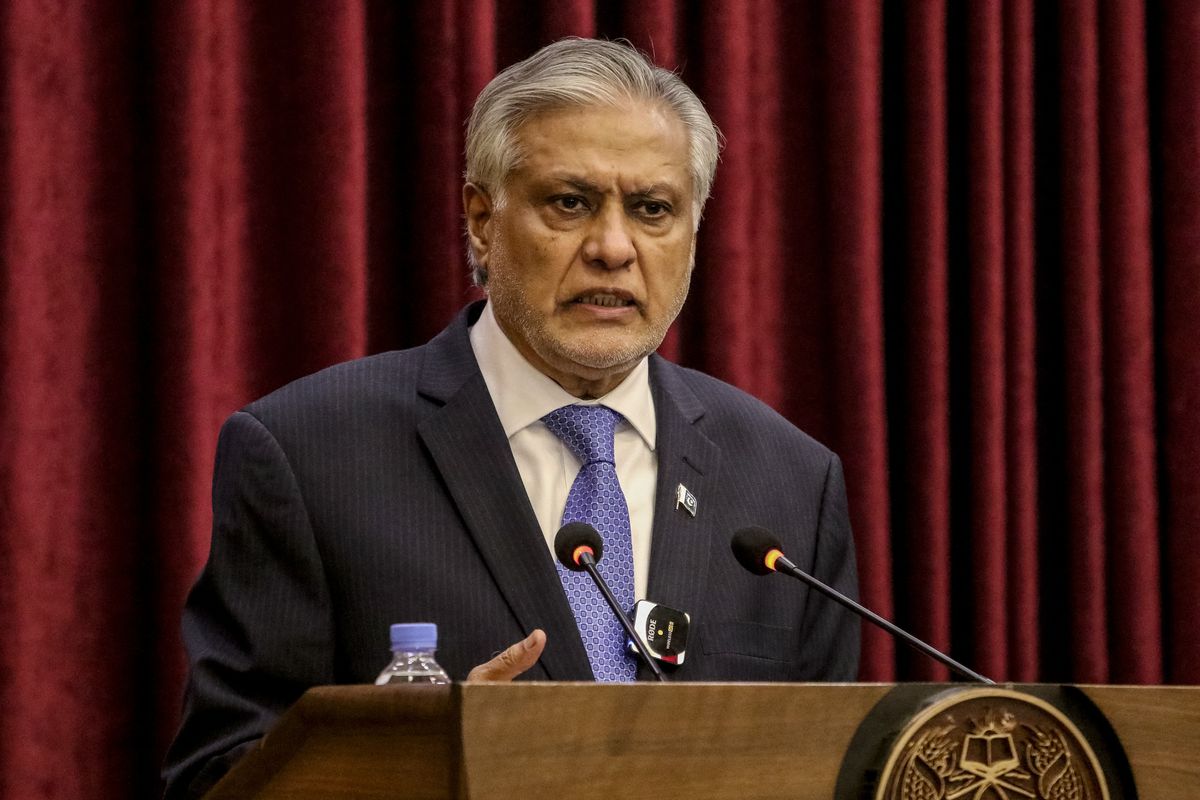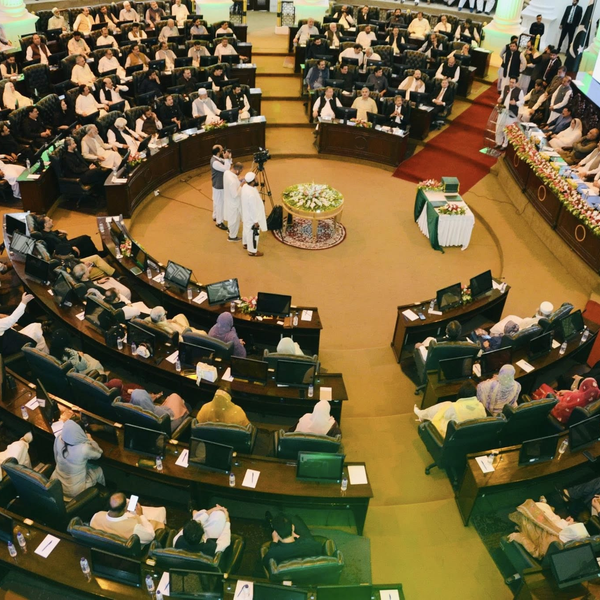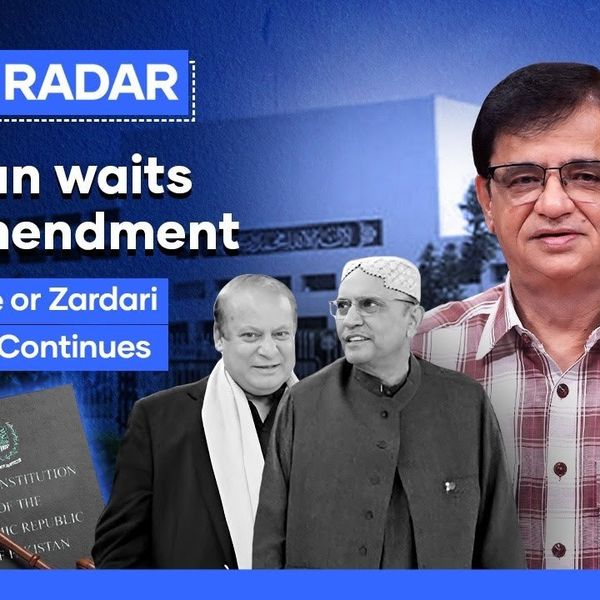'Pakistan and India to reach peace time within 10 days'
Pakistan Foreign Minister Ishaq Dar says tensions with India ‘subsiding’, ceasefire holding

Aamir Abbasi
Editor, Islamabad
Aamir; a journalist with 15 years of experience, working in Newspaper, TV and Digital Media. Worked in Field, covered Big Legal Constitutional and Political Events in Pakistan since 2009 with Pakistan’s Top Media Organizations. Graduate of Quaid I Azam University Islamabad.

Pakistan's Foreign Minister Ishaq Dar speaks during a bilateral meeting with his Afghanistan counterpart Amir Khan Muttaqi at the former presidential palace in Kabul on April 19, 2025.
AFP
Pakistan’s Deputy Prime Minister and Foreign Minister Ishaq Dar said on Thursday that forces of both India and Pakistan will reach peace time in the next 10 days.
At a press briefing in Islamabad, Dar said tensions between Pakistan and India were subsiding, and both sides were fully implementing a ceasefire that was brokered by the United States.
“The ceasefire has been fully implemented,” he said, adding, “The forces of both countries are following the time plan professionally."
The ceasefire was agreed on May 10, following several days of intense cross-border fighting between the nuclear-armed neighbors.
The violence began on May 7, when India launched airstrikes inside Pakistani territory. India claimed the strikes targeted militant groups it blamed for the April 22 attack that killed 26 tourists in Indian-administered Kashmir.
The strikes triggered a sharp escalation, with both militaries exchanging heavy artillery, missiles, and drone fire. The conflict threatened to spiral out of control, drawing concern from world leaders.
U.S. President Donald Trump’s administration played a key role in mediating the ceasefire and offered to assist both nations with trade incentives if they de-escalated.
“At 8:30 a.m. on May 10, we received a call from U.S. Secretary of State Marco Rubio, asking if Pakistan was ready for a ceasefire,” Dar said. “We replied yes, we are peace-loving and acted only in self-defense.”
India had accused Pakistan of harboring militants involved in the Kashmir attack. Dar denied the allegations and said New Delhi did not provide any concrete evidence or advance notice before launching its strikes.
“India kept saying there were terrorists in Muridke and Bahawalpur,” he said. “We invited international media to those locations and proved these were baseless allegations.”
Dar said Pakistan had offered India an independent investigation into the Kashmir attack, which New Delhi rejected. “If our hands were not clean, would we have made such an offer?” he said.
India’s defense minister later described the ceasefire as “just a trailer” and warned of a larger war. Dar dismissed the remarks as political rhetoric.
“Pakistan proved that we are peace-loving,” he said. “Whatever we did, we did it in self-defense and with restraint.”
Dar also addressed Pakistan’s willingness to hold dialogue with India.
“Pakistan is the biggest victim of terrorism,” he said. “There will be composite talks on all issues, including Kashmir and terrorism, whether hosted in the United Arab Emirates, Saudi Arabia, or anywhere else.”
He added that whether Israel had assisted India in its military operations was “none of our business.”
‘Grateful to China and Afghanistan for their cooperation’
Dar also gave a briefing on recent trilateral talks between Pakistan, China, and Afghanistan, held in China. He said the three countries agreed not to allow any terrorist groups to operate from their territories.
“We will eliminate terrorism with all our might—whether it is the Pakistani Taliban (TTP), Baloch separatists (BLA), or the Majeed Brigade,” he said. “We are grateful to China and Afghanistan for their cooperation.”
Dar said regional development and connectivity were key focus areas of the talks. China expressed interest in financing a new railway linking Pakistan, Afghanistan, and Uzbekistan, and it also supported the expansion of the China-Pakistan Economic Corridor (CPEC).
“Projects under CPEC-2 include the realignment of the Karakoram Highway and the Karachi-Hyderabad highway,” he said. “It was also decided to make Gwadar Port fully operational and build a highway from Peshawar to Kabul.”
China also expressed condolences over the recent conflict with India, which Dar said killed 40 civilians and 13 soldiers in Pakistan, and injured 199 others. Beijing reaffirmed its support for Pakistan on the Kashmir issue, while Islamabad reiterated its backing of the One China policy.
“Terrorism returned to Pakistan due to wrong policies in the past,” Dar said. “Forty thousand terrorists were allowed to return, and 100 hardened criminals were released by executive order.”
He said China’s support remains strong because Chinese citizens and infrastructure projects have also been targeted by militant groups.
The upcoming China-Pakistan Strategic Dialogue is set to be held in Islamabad, with the Chinese foreign minister expected to attend.










Comments
See what people are discussing